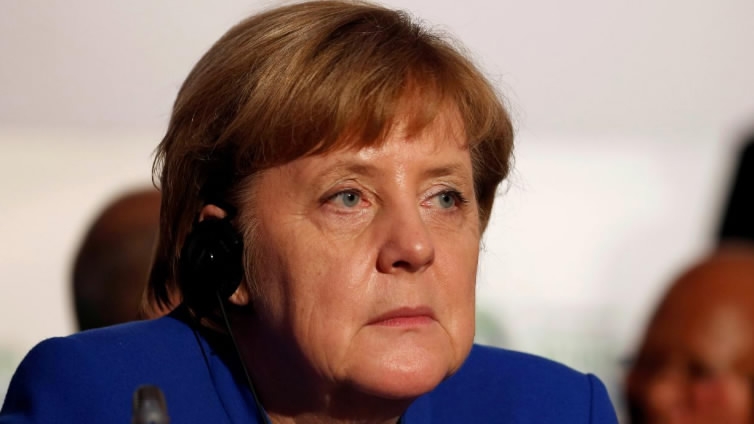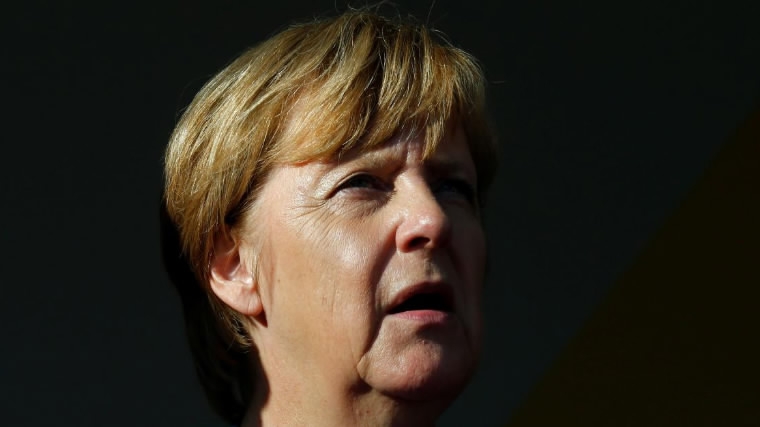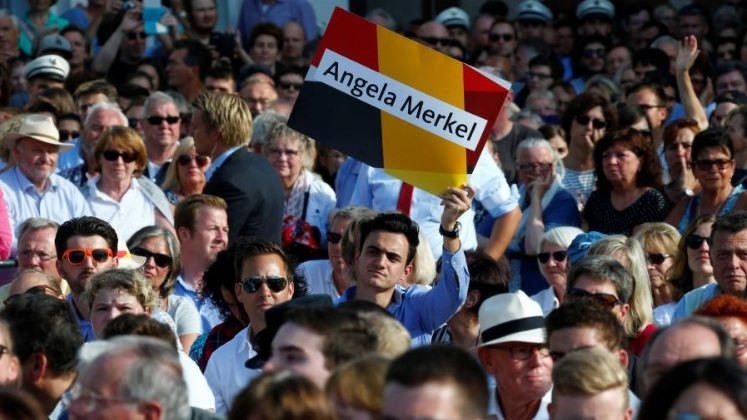
Politics
21:46, 30-Nov-2017
Merkel allies try to appease fuming SPD ahead of German coalition talks
CGTN

Senior members of German Chancellor Angela Merkel’s conservatives urged the center-left Social Democrats (SPD) on Thursday to refrain from drawing red lines on policy issues that could complicate exploratory talks to form a stable government.
Merkel is struggling to find a coalition partner after her center-right bloc bled support to the far right in a September 24 election and her attempts to form a three-way tie-up with the pro-business Free Democrats (FDP) and the Greens failed.
The SPD, which governed in coalition under Merkel since 2013 and suffered its worst election result in postwar history, had previously been strongly opposed to another “grand coalition”.
But under pressure from President Frank-Walter Steinmeier, SPD leader Martin Schulz has changed tack and signaled his willingness to discuss a way out of the political impasse in Europe’s biggest economy.

German Chancellor Angela Merkel, top candidate of the Christian Democratic Union Party (CDU) attends an election rally for the upcoming federal elections in Gelnhausen near Frankfurt, Germany, August 14, 2017. /Reuters Photo
German Chancellor Angela Merkel, top candidate of the Christian Democratic Union Party (CDU) attends an election rally for the upcoming federal elections in Gelnhausen near Frankfurt, Germany, August 14, 2017. /Reuters Photo
Steinmeier, a former SPD lawmaker and foreign minister, will host a joint meeting at 1900 GMT on Thursday between Merkel, her Bavarian conservative ally Horst Seehofer and Schulz as part of efforts to facilitate the formation of a stable government.
The atmosphere ahead of the talks has been soured, however, by a fierce dispute between cabinet colleagues over a European Union license for a weedkiller.
Conservative Agriculture Minister Christian Schmidt angered the SPD on Monday by breaking protocol to back an EU proposal to extend the use of glyphosate in the bloc for another five years, a measure opposed by the SPD.
In reaction, SPD members have called for compensation and set various policy conditions.
“I recommend to all of us that we should not complicate the efforts to find a stable form of cooperation by publicly drawing red lines,” Health Minister Hermann Groehe, a senior member of Merkel’s Christian Democrats (CDU), told the Rheinische Post daily.

A supporter holds a placard during an election rally of German Chancellor Angela Merkel, top candidate of the Christian Democratic Union Party (CDU) for the upcoming federal elections in Gelnhausen near Frankfurt, Germany August 14, 2017. /Reuters photo
A supporter holds a placard during an election rally of German Chancellor Angela Merkel, top candidate of the Christian Democratic Union Party (CDU) for the upcoming federal elections in Gelnhausen near Frankfurt, Germany August 14, 2017. /Reuters photo
Groehe said both parties could look back at four successful years, adding, “Even though a grand coalition should not be a permanent state, the big parties have a special responsibility for the country. We need a stable government.”
Annegret Kramp-Karrenbauer, another senior CDU member, said both parties should overcome their differences and focus all their efforts on forming a solid coalition.
“The voters expect that this (weedkiller) row is put to an end,” Kramp-Karrenbauer told Deutschlandfunk radio.
If talks with the SPD should fail, the last resort would be the formation of a Merkel-led minority government, she added.
Schulz has said SPD party members will get to vote on any decision by the leadership to reconstitute a coalition under Merkel. SPD members will discuss the options at a December 7-9 party congress.
Source(s): Reuters

SITEMAP
Copyright © 2018 CGTN. Beijing ICP prepared NO.16065310-3
Copyright © 2018 CGTN. Beijing ICP prepared NO.16065310-3